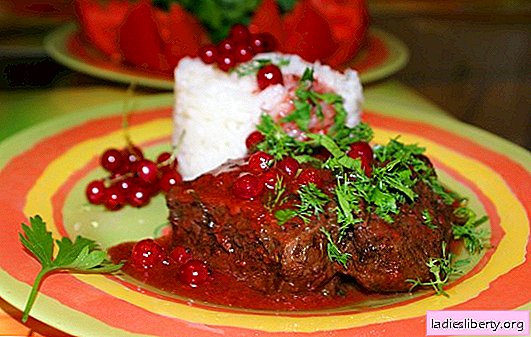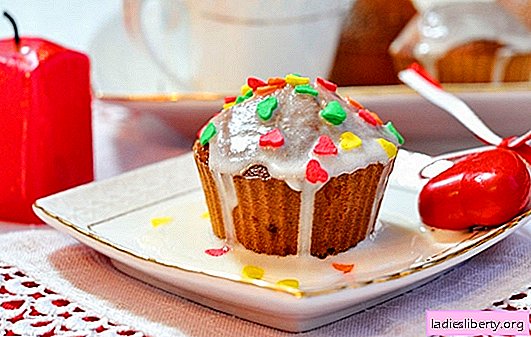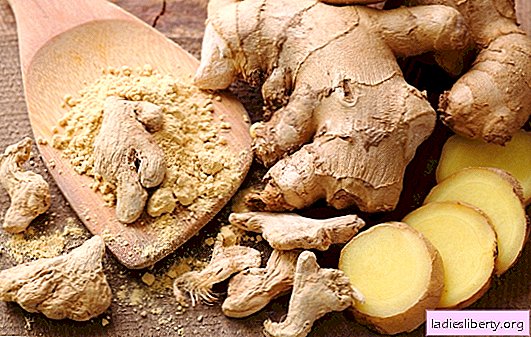
Eucalyptus - a general description
Plant name eucalyptus it is known to almost everyone, however, not every person saw this tree itself. Spherical eucalyptus (lat. Eucalyptus globulus) is a huge tree about 50 m high (individual specimens can reach 100 or more meters in height). Its unique property is its ability to absorb a huge amount of moisture from the soil, working as a natural sediment and draining marshy places.
The eucalyptus tree belongs to the Myrtle family, it has a smooth bark with a bluish tint and a lush spherical crown. Eucalyptus leaves, depending on age, look different: young ones have a heart-shaped shape, are located next to and almost devoid of petioles, older ones are petiolate, spirally arranged, dark green. They emit a characteristic very strong odor. Flowers are formed in autumn on the 3rd and 5th years of a tree's life; they are large in size on short pedicels. Fruits are tetrahedral boxes.
Eucalyptus - types and places of growth
The natural distribution area of eucalyptus is Australia and the islands closest to it. In other places, eucalyptus trees landed artificially. They grow in South America, Africa, India, Indonesia, New Zealand, on the coast of the Black and Mediterranean Seas, in the Crimea, in the Caucasus and in Moldova. In science, there are about 700 species of eucalyptus, including spherical, black, heart-shaped, multi-colored and hundreds of others.
Eucalyptus - healing properties
Eucalyptus leaf essential oil is a powerful remedy for a number of diseases. In addition to oil in the leaves there is a huge amount of volatile, tannic and resinous substances, which also have a positive effect on human health. This composition determines a wide range of applications of eucalyptus in medicine, both in folk and official.
It is used to treat respiratory diseases as an antimicrobial, expectorant and painkiller; with the help of eucalyptus-based drugs, they treat both common SARS and complex tonsillitis, tonsillitis, bronchitis, pneumonia and tuberculosis. Eucalyptus is successfully used to combat persistent pathogenic microorganisms - staphylococci, streptococci, etc.
He is also able to help with febrile conditions and is used to prevent them. The bactericidal, antiseptic and disinfecting effect of eucalyptus-based drugs is used in the treatment of gynecological diseases (adnexitis, endometriosis), as well as phlegmon, ulcers, abscesses and inflammatory processes of the kidneys and urinary tract.
In addition to these properties, medicines based on eucalyptus leaves have an immunomodulating effect, they strengthen the body's natural defenses and fight viruses (with herpes, furunculosis, flu, etc.). In folk medicine, eucalyptus is used to combat intestinal parasites and pediculosis.
And ointments with eucalyptus are a good remedy for arthritis, arthrosis, osteochondrosis and other diseases of the joints and musculoskeletal system. And, of course, eucalyptus is indispensable for the prevention of infections transmitted by airborne droplets. Inhalation of volatile substances of eucalyptus oil can prevent infection even in the midst of an epidemic.
Eucalyptus - dosage forms
For the preparation of medicines, plant leaves are used. Young leaves collected in autumn are especially rich in essential oils. From them prepare infusion, broth, tincture, and also receive essential oil. Decoctions, tinctures and infusions can be made independently, oil is purchased in a pharmacy.
In addition, for general strengthening and preventive procedures, you can use the eucalyptus broom for a bath. It is steamed and inhaled with the hot air of the steam room. For bath massage, eucalyptus branches are added to an ordinary broom made of birch or oak.
Eucalyptus Recipes
Infusion of eucalyptus leaves is prepared from 1 tbsp. tablespoons of raw materials, poured with 500 ml of boiling water. The resulting mixture is put in a warm place for 1-2 hours, then filtered and taken 50 ml 3-4 times a day in hot form with bronchitis and other pulmonary diseases.
A decoction of eucalyptus leaves is prepared from 2 tbsp. tablespoons of raw materials placed in an enameled or glass dish and filled with 200 ml of boiling water. The broth is heated in a water bath for 15-20 minutes, filtered and adjusted to its original volume.
For inhalation and rinsing, 10-15 drops of oil diluted in 200 ml of water are used.
Eucalyptus - contraindications
Contraindication to the use of drugs based on eucalyptus is an individual intolerance to its components and age up to 1 year. Children from 1 to 3 years old should use drugs with eucalyptus only as directed and under the supervision of a doctor. Side effects are rare, but with the first use of eucalyptus, caution should be exercised.
Comments











